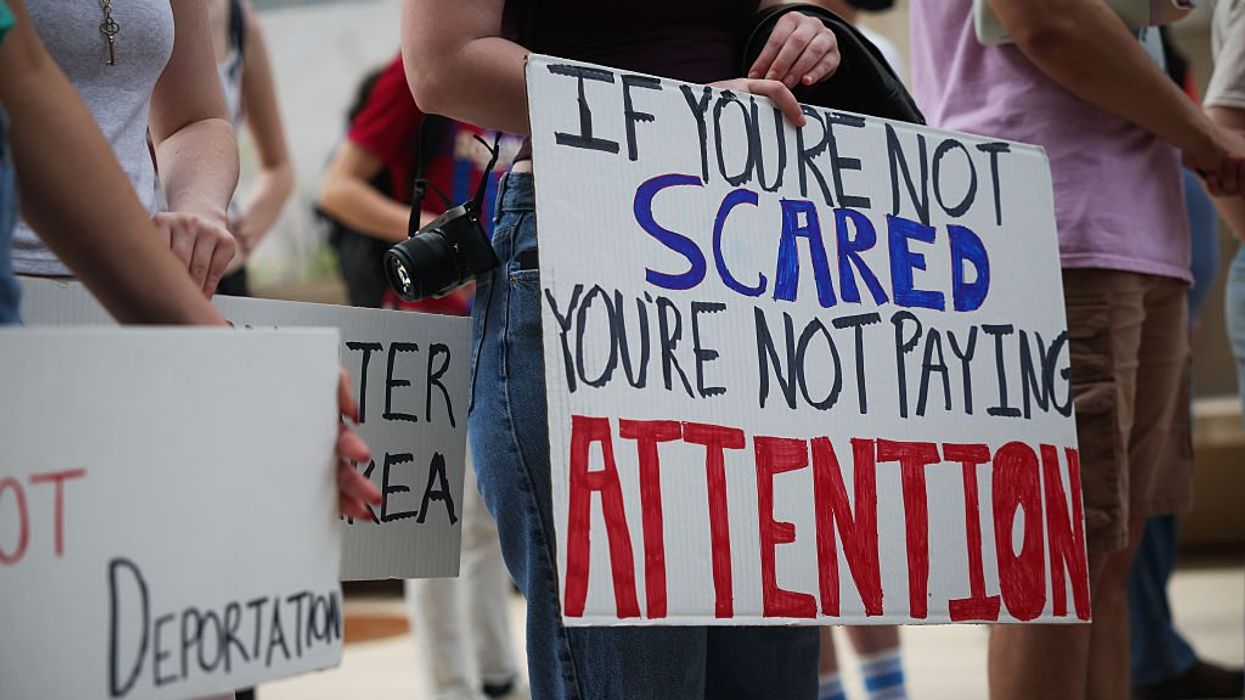“I promise, things will get better. The country won’t always be like this.” Those are the words I spoke to my 20-year-old daughter on Wednesday, Sept. 10.
My Gen Z daughter was shaken up after watching the video of the assassination of Charlie Kirk on social media, and on the same day as another school shooting at Evergreen High School in Evergreen, Colorado, hospitalizing three students with gunshot wounds, as well as the ongoing news coverage of one of the most repulsive child sexual predators in American history’s relationship with the current president.
The grief that Kirk’s family and friends are experiencing after his tragic and senseless death is unfathomable and is not being dismissed here, but there is also a broader sense of pain being experienced by younger generations in America.
Being 20 years old in America today means coming of age in a political landscape that often feels fractured, volatile, and devoid of empathy. For many young adults, this isn't just background noise; it's the defining context of their early adulthood.
Many young adults, like my daughter, were not alive in the days following the horrific attacks on Sept. 11, 2001. They find it inconceivable that we, as a nation, came together to rally around our heroes and heal from the unfathomable grief as one.
Instead, they lived through a global pandemic, which seemed to break our country apart even further than it was before 2020.
The witnessing of evil acts of political violence, which unfortunately has become commonplace, adds a layer of genuine fear to what should be formative years of exploration and growth.
Social media only amplifies this tension. Platforms that were once spaces for sharing photos and staying connected with friends and family have become battlegrounds for political messaging. The algorithm-driven nature of social media platforms means individuals are often exposed to increasingly extreme content, making the political landscape appear even more divided than it might be.
Our hyperpolarization also creates an exhausting social dynamic. Simple conversations about current events can quickly turn into heated debates or uncomfortable silences. The pressure to have “correct” political opinions and to express them in precisely the right way can feel overwhelming. Many young people report feeling anxious about posting anything that could be interpreted politically yet also feeling guilty for staying silent on important issues.
Many 20-year-olds describe feeling like they must constantly navigate political landmines in their daily interactions, whether at school, work, or at family gatherings.
It is also affecting their dating habits. According to a recent NPR/PBS News/Marist poll, a majority of Americans under 45 say it's important to date or marry someone who shares their political views. Among Gen Z and young millennials—those 18-29—six in ten feel it's important, compared to just a third of Baby Boomers, those Americans over 60.
For a 20-year-old, this social and political environment creates a strange cognitive dissonance—trying to build a future while wondering if basic democratic institutions will remain stable or even continue to exist. Instead of thinking about voting for a more hopeful and hope-filled candidate, they worry about whether we continue to have free and fair elections.
Despite the challenges, many young adults are developing sophisticated political thinking and strong civic engagement. They're learning to fact-check information, think critically about media sources, and engage with complex policy issues.
A survey following the 2020 election showed that Gen Zers are more politically knowledgeable than older Millennials and that “Gen Z Is Anything but Politically Ill-Informed.”
As a mother and a citizen, I am proud of the resilience and innovation of this generation.
Young people are finding new ways to engage politically that bypass traditional channels. They are organizing online, creating independent media, and building communities around shared values rather than party labels.
They also seem to understand that what we are living through is not strictly because of “the left” or of “the right”, rather it is an American problem, with all its nuance.
Living through this period, as a young adult, means accepting uncertainty as a constant. But it also means being part of a generation that's learning to navigate complexity, build resilience, and potentially reshape American political culture in more constructive directions.
As someone who lived through part of the 1960s and all the 1970s, I understood my daughter’s sadness at living in this America during this time period, but I could reassure her that things will get better, and we will all, once again, live in brighter days. But it will require all of us to embrace our common humanity, reject dividers and instead look towards unifiers, and rebuild stable institutions.
This is what we owe our children.
Lynn Schmidt is a columnist and Editorial Board member with the St. Louis Post-Dispatch. She holds a master's of science in political science as well as a bachelor's of science in nursing.



















Marco Rubio is the only adult left in the room